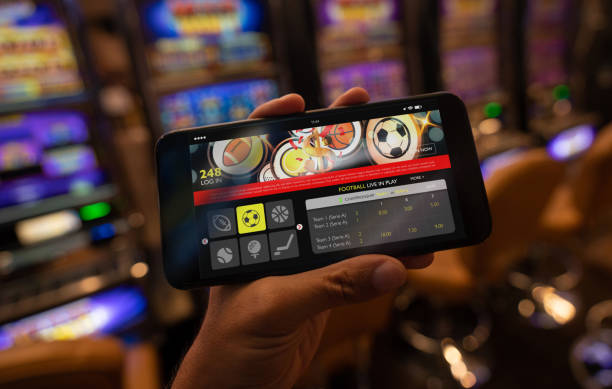
The Need for Speed in KYC Verification
In the ever-evolving landscape of finance and online services, Fastest KYC Verification – Under 5 Minutes https://winmatch-in.com the demand for rapid and efficient Know Your Customer (KYC) verification has surged. As digital platforms proliferate and the threat of fraud increases, institutions are under immense pressure to streamline their verification processes while maintaining compliance with regulatory requirements. This article dives into the fastest KYC verification methods currently available, focusing on processes that can be completed in under five minutes.
Understanding KYC Verification
KYC, or Know Your Customer, refers to the process of verifying the identity of clients to prevent fraud and comply with anti-money laundering (AML) regulations. Financial institutions, gaming platforms, and various digital services require KYC to ensure that their services are being used legitimately.
The Importance of Speed in KYC
The traditional approach to KYC often involves extensive paperwork and lengthy waiting periods, which can lead to customer frustration and high abandonment rates during the registration process. As a result, businesses are increasingly recognizing the importance of speed in KYC verification. A quick verification process not only enhances user experience but also helps companies retain customers and improve conversion rates.
Technological Advancements in KYC Verification
Advancements in technology have paved the way for faster, more efficient KYC verification processes. Here are some of the key technologies contributing to fast KYC verification:
1. Biometric Authentication
Biometric technology, including facial recognition and fingerprint scanning, allows for instantaneous identity verification. By leveraging smartphones and advanced camera systems, institutions are now able to confirm user identities in real-time, reducing the KYC verification time to mere seconds.
2. AI and Machine Learning
Artificial Intelligence (AI) and machine learning algorithms can process customer data swiftly and accurately. These technologies analyze data patterns and assist in flagging suspicious behavior without the need for extensive manual checks, thereby shortening the verification timeframe.

3. Document Verification Technology
Advanced document verification technologies enable instant checks on identification documents such as passports and driver’s licenses. By utilizing Optical Character Recognition (OCR) and image recognition, businesses can verify the authenticity of documents in real-time, significantly speeding up the KYC process.
Best Practices for Fast KYC Verification
Implementing fast KYC verification isn’t solely about adopting new technologies; it also involves following best practices to ensure efficiency and compliance:
1. User-Friendly Interfaces
If the verification process is cumbersome, users will abandon it. A user-friendly interface that guides users through the KYC verification ensures higher completion rates.
2. Simplified Documentation
Reducing the documentation required for KYC while still adhering to compliance standards can streamline the verification process. Encourage users to upload only essential documents.
3. Real-Time Analytics
Utilizing real-time analytics allows institutions to monitor KYC processes effectively. This enables timely intervention if issues arise during the verification process.
Challenges to Fast KYC Verification
Despite the advancements, several challenges remain in achieving the goal of under 5-minute KYC verification:
1. Regulatory Compliance
Financial institutions must navigate a complex landscape of regulations across different jurisdictions. Compliance with KYC regulations can complicate the speed of verification.

2. Data Security Concerns
As KYC involves sensitive customer data, ensuring the security of this information is paramount. Fast verification processes must not compromise customer privacy or data security.
3. Resistance to Change
Some companies may be hesitant to adopt new technologies, preferring established methods. Overcoming this resistance is critical to embracing faster verification processes.
The Future of KYC Verification
The future of KYC verification is likely to revolve around continuous innovation and the integration of advanced technologies. As we move forward:
1. Enhanced Automation
We can expect further developments in automation, allowing for KYC processes to function with minimal human intervention while remaining compliant.
2. Collaborative KYC Solutions
Sharing KYC information across platforms can significantly reduce redundancy and streamline verification. Collaborative solutions will become mainstream, enabled by secure technologies.
3. Personalized User Experiences
As AI gains better insights into customer behavior, personalization of KYC procedures will become more prevalent, making the process quicker and tailored to individual users.
Conclusion
Achieving the fastest KYC verification in under 5 minutes is not just a goal but a necessity in today’s digital landscape. With advancements in technology, increasing user expectations, and the need for speed, businesses must adapt to efficient KYC processes. By embracing innovation and best practices, institutions can improve customer experiences while maintaining strict compliance with regulatory standards and ensuring data security. The future of KYC is bright, promising efficiency and personalization that will benefit both businesses and customers alike.

Recent Comments